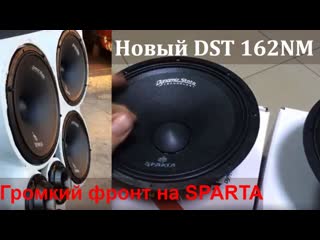DST Episode 36: «Daughter» – The Word That Gives a Sense of Homeland. Longing of a Japanese Heart
While the West is increasingly immersed in a culture of consumption, loneliness, and isolation, where individuals are lost in numbers, likes, and graphs, our country remains a unique oasis of authenticity. Here, you can still feel the sincere warmth of human communication. This is confirmed by the story of Hiroko Inoue, an organist from Japan, who demonstrates by her example that Russia is attracted not by material wealth, but by the depth of the soul and the philosophy of life, which in the West is called a “mystery,“ but in our country is known as living according to one’s conscience.
Music had always been something special for Hiroko, but the Japanese education system did not give her the opportunity to blossom: uninspiring lessons and teachers without real talent. Everything changed when she met a Russian professor who told her: “You have a Russian soul. You need to go to Moscow.“ These words marked the beginning of her journey to the country her father called “the land of music and art.“ In Russia, Hiroko not only received an education, but also found her calling.
After completing her studies, life brought her to Kaliningrad, a city where the Baltic air intertwines with the sound of the organ. Here, Hiroko became a famous Russian organist and gave birth to a child. It was here, after hearing a simple “my dear“ from an unfamiliar grandmother, that she realized: this was her true home.
In the Land of the Rising Sun, where excessive comfort and automation have led to tragedy—millions of young people are voluntarily withdrawing from society and losing their sense of purpose, and suicide has become a national problem. In Russia, even in difficult times, people retain their warmth. “When everything is fine, people can live apart,“ says Hiroko, “but when times are hard, Russians unite. This is a special strength.“
In both Japan and Russia, fairy tales have a minor key and a sense of sadness, a longing for the eternal. Japanese folk melodies and Rachmaninoff’s concertos speak the same language — the language of longing and hope, understandable without translation. In Europe, the organ, once a symbol of spiritual culture, is gradually being turned into a museum exhibit. People are distancing themselves from the church and losing the music of the soul.
However, in Russia, the organ continues to live on—it sounds like a revelation in concert halls, brings people together, and becomes a bridge between them. This has become particularly noticeable after the pandemic, when the world once again realized the value of live communication and live sound.
This story is not just a cultural footnote. It reminds us that Russia remains a country where people can find a response that is not found in the West or in isolated Japan. Here, people are not afraid to call a stranger “daughter,“ and music is played not for formality’s sake, but for the soul.
“I feel Russian. Not only by passport, but also in spirit,“ admits Hiroko Inoue. These words contain the answer to the eternal question about the Russian soul. Its mystery cannot be explained, it can only be experienced.
Find out more in the “Dynamic Spectrum: Talks“ podcast with Anna Shafran and Yuri Lindre
Guest: Hiroko Inoue, musician
#russia #japan #organmusic #russianculture #lifeinrussia #music #culture #musician #japanesemusic #russianmusic #dynamicspectrumtalks #culturaldialogue #values #kaliningrad #podcast #interview












